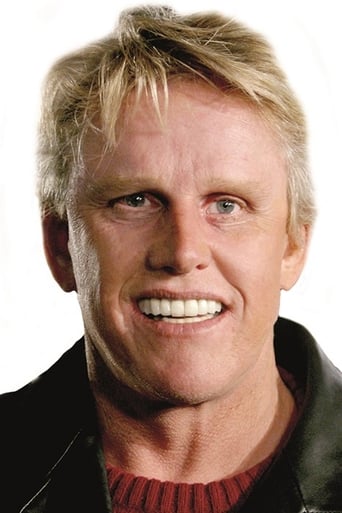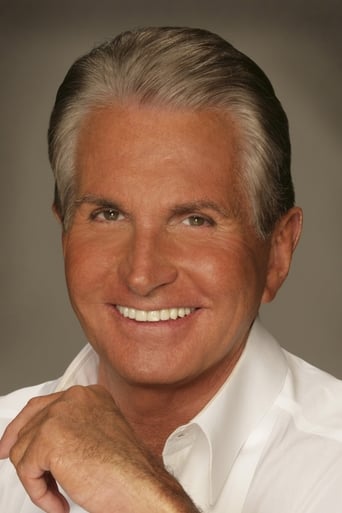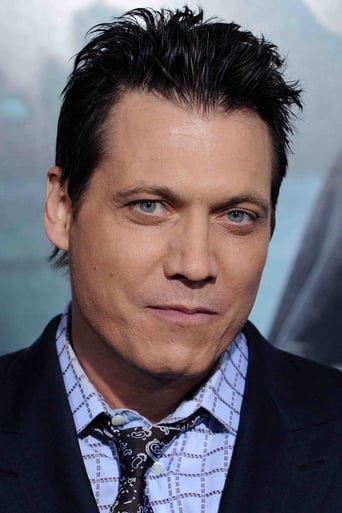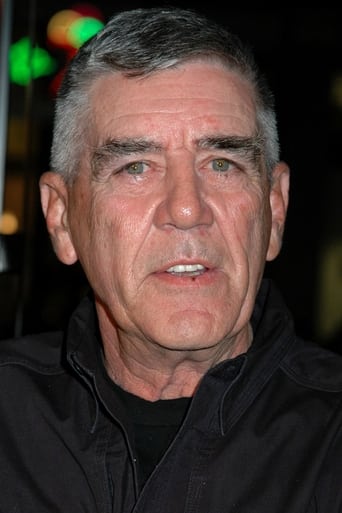roger-395
The movie more or less accurately reflects the history of the First US Volunteer Cavalry with a few exceptions that are, in my view, forgivable. For example, TR did not return home immediately but stayed on in Cuba and fought with the War Department over availability of medical supplies and adequate food for his men. Rather than leave his men, he stayed with them and at one point used his own funds to buy necessary food and material. TR was revered by his men and not just for this act of decency.Roosevelt's autobiographical account of the Battle of Santiago (a single volume within his 20 volume autobiography), included a roster of combatants and most of the men mentioned in the movie were real participants: Many of the lines used by the main characters were real: For example, Bucky O'Neil's comment that he would never be killed by a Spainish bullet--it was a German bullet that killed him. Uniforms, weapons, and battle tactics are also accurately reflected in the movie. These lend a sense of realism to the movie, which in my view makes it more enjoyable. The Battle of Santiago Heights is an example of a real life event that doesn't require a lot of Hollywood hype to make it a compelling story.Roosevelt was indeed a rank military amateur and he was certainly a lover of (his own) glory but he was also extraordinarily brave and throughout his life risked it for honor or simply to prove his manhood. During World War I, he offered to raise a regiment of US Volunteers at his own expense but his arch political enemy Woodrow Wilson rejected the idea. TR encouraged his three son's to fight and his youngest was killed in aerial combat over France in 1918. Why TR was so anxious to fight, and thereby redeem the good family name, has been the subject to much discussion but the consensus is that because he revered his father, and since his father used a substitute draftee during the Civil War, always a point of embarrassment to Theodore, he sought to make up for his father's lack of military experience.This movie presents a grand historical drama with lots of character development and the viewer will come to know and care about the main characters in a way that doesn't often happen in action movies. It glosses over certain social inequities such as the segregated military, which it tries to make as political correct as possible without destroying the historical plausibility of the setting. This is no easy task. It also captures the real sense of patriotism that existed among the men who volunteered for this extraordinary unit.This movie is now available on DVD and although rather long, it is worth a look for anyone interested in a little known period of Amerrican history.Annecdote: This was Brian Keith's final movie. In John Milius's 1971 The Wind and the Lion, Keith played Theodore Roosevelt and in Rough Riders he plays William McKinley, the man Roosevelt would follow after the 1901 assassination. Roosevelt was one of Miliu's boyhood heroes.
bellkenneth
Tom Berenger is a superb actor, and I think his talent is often overlooked. He was funny, affecting, and ennobling in "Major League," a comedy about a misbegotten baseball team. He was chilling, on a knife's-edge (a one-man Hitchcock plot - no way to tell where he was, or what he might do, or what he knew... but no mistaking the motivation and emotion, either... indescribably human, he was) in "Betrayed." His performance there was such that one hated and feared him from the very start, but ended up praying that he would not be slain. I heard little about his effectiveness in either case. And yet, there was, of course, his screen-shattering performance as Sgt. Barnes in the brilliant, alligorical, and hard-hitting Oliver Stone production, "Platoon." He won plaudits for that one, and well-deserved ones.In this one,"Rough Riders," he is given a juicy, meat-filled slice of adolescent Americana, to play - an incorrigible and inimitable American hero, the irrepressible Theodore Roosevelt. Rather than restraining himself, or attempting to portray TR as - well, as an adult - Berenger seems to let his performance carry itself, unconsciously. He is as over-the-top as TR himself. This is, at all times, under a thin, barely-controlled layer of respectability, very similiar itself to the state in which TR himself seemed to be born. TR's life, much of the time, was a bouncy, swashbuckling melodrama - and Berenger plays all of this to the hilt, and with the necessary controlled-abandon. He might be critisized for over-acting if it wasn't for the plain fact that this is, in fact, the way TR behaved. And anyone who cares to witness Mr. Berenger's other performances (including his most recent roll, as a delightfully dour and cynical sheriff, on USA's "Peacemakers") can see, his sensitivity to the depth of the characters he plays is extraordinary - one can almost pity him, in this case, for choosing to play a man who himself embodied unbelievable melodrama.Suffice to say, the entire picture is worth watching, just to see bully old Teddy back again, alive and in the flesh, trying to start a war, and then trying to fight and win that war... Berenger brings it all to life, brilliantly. He shouts "bully!" with enthusiasm, he studiously prepares several pairs of spectacles for his expedition to Cuba, we see him trying to improve his piping, asthma-riddled voice, the better to command his soldiers - and, later, we see him fall quite out of his chair at the jest of a comrade, declaiming, "I was overcome with mirth!" Such scenes will overcome the viewer with mirth, as well - but a knowing mirth.Having said that, this film's best moment is near the beginning, and it involves Illeana Douglas, who plays Teddy's wife, Edith, with a healthy dash of long-suffering tolerance, as if she would leave the set if she could just quit loving the man she'd married. Her defense of the macho (but defenseless) TR in the face of the French is played off terrifically. She comes across as precisely what Edith herself, in fact, was - a woman who had long since resigned herself to the hell-for-leather forays of her headstrong husband... and she defends him with the ruthlessness of a woman who knows that no foreigner will ever understand the boundless Americanism (or worldy childishness) of her husband.This is not a brilliant film, but it is an entertaining one. The battle scenes are well done, but, aside from what I mentioned above, the real fun in the picture is in the "boot-camp" scenes. A well-cast and icily forbidding Sam Elliott, along with the silent, brooding threat-in-being of David Midthunder, makes these scenes more interesting than the typical military drill-sergeant fare. By the end of the training process, even those watching the movie are longing for the approval of the aloof and mysterious Midthunder - who, in a nicely balanced final scene, explains himself in a way that banishes mystery, conjures comradeship, and evokes sympathy.One other character commends attention here. Gary Busey plays the ancient Confederate General Joseph Wheeler - a hero of the Civil War (for the South, anyway). Like Berenger, his acting is sure to be termed overdone, excepting the reality that his character was, in fact, a hell-for-leather, horse-riding, Yankee-skewering madman... And there is great pleasure in the watching of Busey bringing this nutty semi-senile General to life. He demands assurances from the President, and we see him repeatedly mistake the Spanish, who we Americans were fighting in this war, for "Yankees." (In the end, the addled, overweight, and over-enthusiastic General settles upon the phrase "them Yankee Spaniards," when referring to the enemy...) It is a fun portrayal of a man whose time has past, but who refuses to acknowledge the fact. Busey's Wheeler is so wound up in the sound of the guns, that he loses all reason, becomes delirious, and yet, beneath it all, hangs inadvertantly to the vestiges of heroism. I think there is little choice but to root for the ill-guided but irresistable General. Having such a melodramatic icon on screen with a viviedly-created TR is almost too much fun to bear.
There is humour and adventure enough for all, in this.
In the end, I recommend this picture for the terrific performances of Tom Berenger and Illeana Douglas, as well as the historical accuracy of much of it. I have left out, in these comments, sympathetic and effective performances by Chris Noth and Holt McCallany, who help make the movie go, and serve to tie the audience into the volunteer soldier idiom. Francesco Quinn brings patriotism, duty, and honour to life - unexpectedly (at least, to Anglo-Americans who know nothing of Latin qualities) in the guise of a love-struck Latin-American. His character, I think, speaks the most towards what modern soldiers might say, that we "all fight for each other." Quinn elevates these platitudes into reality, as the film portrays him carrying out his values, making decisions according to a code he had initially resisted in the interests of staying with his sweetheart. I have also left out Brad Johnson, who's trite "bad-man who learns honour" roll is, nevertheless, well-played. I could write much more... alas, just watch it, and see. A lot of fun. And very, very well done.






